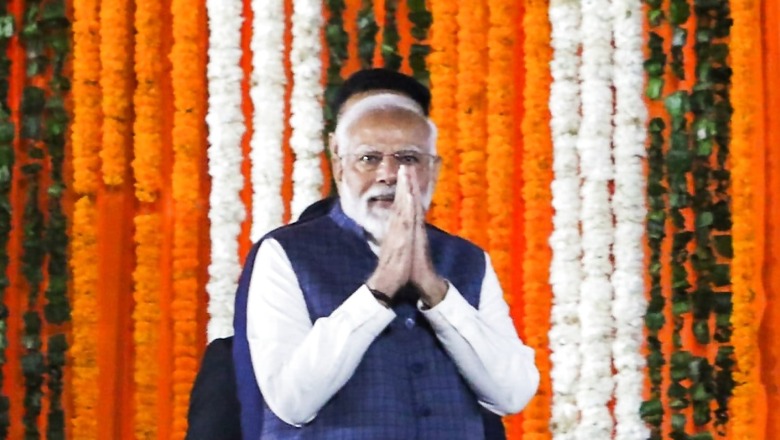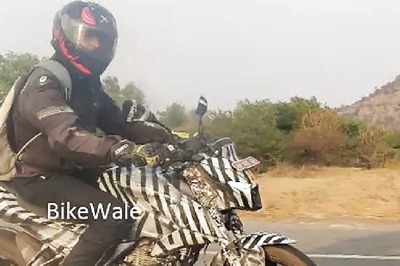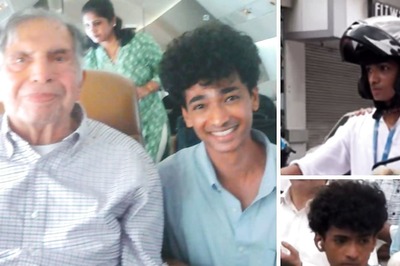
views
Just after campaigning in his Lok Sabha constituency of Varanasi or Kashi ends and the curtain comes down on India’s longest election campaign in history, the Prime Minister will log out. On May 30, he will visit the Vivekananda Rock Memorial in Kanyakumari and meditate at the Dhyan Mandapam till the evening of June 1.
Legend has it that it was upon this rock where a memorial has now been built that Goddess Parvati performed a Tapasya in devotion to Lord Shiva. In the more recent pre-Independence era, this rock also inspired Swami Vivekananda to attain enlightenment. The epiphany fired the Swami to imagine “Bharat Mata” in all her civilisational resplendence. A virtual totem around which all Indians would coalesce to reclaim their identity and eventually press for the decolonisation of their land and mind.
Prime Minister Narendra Modi’s visit to Kanyakumari is in line with the spiritual and civilisational journeys of discovery he is known to undertake at the end of Lok Sabha campaigns.
In 2019, he visited the revered shrine of Kedarnath. In 2014, he traveled to Pratapgarh. This was where the illustrious Maratha King Chhatrapati Shivaji Maharaj scored a famous victory over the Bijapore Sultanate’s general Afzal Khan in 1659.
But if Kedarnath is central to the Hindu faith and Pratapgarh is credited with lighting the spark of Hindu nationalist self-belief, then the Vivekananda rock memorial in Kanyakumari is a synthesis of both.
It is not only an important Shaivite spiritual centre but also a territorial nodal point where India’s eastern and western coastlines merge. The symbolic significance of this consequential jagged outcrop is not lost on Modi who is primarily concerned with the galvanising appeal of Hindu civilisational renewal.
But beyond re-acquainting himself with the enigmatic iconography, the Vivekananda rock memorial, the Prime Minister’s visit also serves a more transactional purpose. It is a call to the Opposition to let bygones be bygones. The declaration of a ceasefire set in the shape of a rock – an emblem of togetherness and amiability.
Modi is hoping that his journey will signal to his opponents that after a bitterly contested, divisive campaign, all parties must come together to honour the mandate and help implement its message.
India needs to heal. It has been through a tumultuous decade of unresolved acrimonies that have rendered institutions, especially Parliament, incidental to the business of democracy.
The question is will the rock inspire another epiphany?


















Comments
0 comment